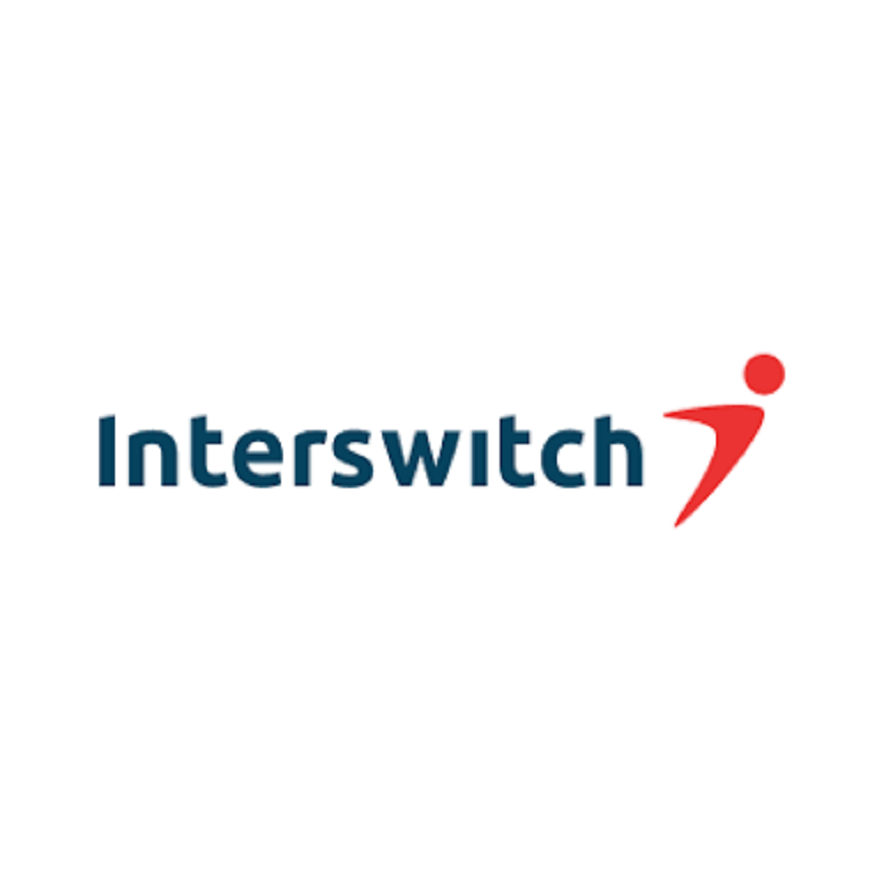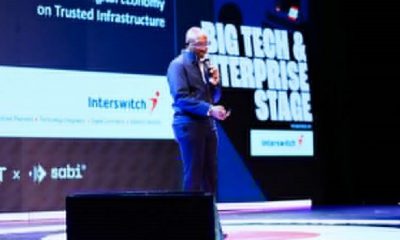Technology
Digital Payment Options Can’t Succeed Without Trust—Lawal

By Modupe Gbadeyanka
One of the things that have had a huge effect on the way human life is technology. It is one tool human has used to make life easier.
From the comfort of one’s home or office, items can be bought on the internet and payments made without having to go to a bank to withdraw cash for the is one of the purchase.
But despite this convenience technology offers, there are some persons who still do things the traditional way and they cannot be blamed.
In this interview, the Divisional CEO of Payments Processing at Interswitch, Mr Akeem Lawal, said stakeholders in the financial technology (fintech) industry must work tirelessly to build trust so as to make the digital payment options to be successful. Excerpts;
The SME sector in Africa is huge. In Nigeria alone, we have over 41 million micro, small and medium enterprises (MSMEs). How important would you say this sector is to the growth and development of the African economy?
The SME sector is a potential game-changer for economic growth, especially in Nigeria. This is why it is important for stakeholders in that sector to provide simple solutions that enhance their ability to generate economic activities that will boost the community and national economy.
At Interswitch, we are committed to providing simple and scalable payment solutions for small and big businesses alike. The Quickteller Business platform is a testament to our commitment to make payments one less thing to worry about for our business users and their customers.
There seems to be a lot of activities within the payment, e-commerce and fintech sectors in recent years, with many new entrants as well as FDIs. What would be your fair assessment of the sectors? What should we expect, going forward?
When accessing the various sectors, we know that the Nigerian economy has been a beneficiary of foreign direct investment inflows since the 1970s. However, there is a need to diversify the Nigerian economy and reduce our dependence on oil. There is no doubt that a thriving industrial sector is pivotal to mass employment, improved skills and better wages, which will lead to a reduction in poverty.
Nigeria’s ICT sector has grown from less than one per cent of GDP in 2001 to almost 10 per cent of GDP today. The country is currently Africa’s biggest technology market and accounts for 23 per cent of internet users in Africa with 122 million people online in December 2018.
Nigeria has surpassed other countries in sub-Saharan Africa to emerge as a premier tech investment destination with 55 active tech hubs raising a total of $94.9 million, while South Africa raised $60.0 million with 59 active start-ups. The growth of the tech sector offers new possibilities for Nigeria’s growing labour force, in terms of employment and entrepreneurship.
Now, these sectors I have mentioned have found gaps to fill and are offering creative solutions to individuals and companies.
However, despite the fact that there are so many new players in these sectors, there is still so much more to be done.
Take e-commerce, for instance, you will be surprised that a good number of people are still not comfortable buying things online – putting in their card details and trusting that what they ordered is what they will get.
The same goes for other digital payment options like PoS. A lot of people would rather spend hours on ATM queues or travel long distances to get to a bank instead of walking up to a nearby money agent to withdraw or deposit money.
This means that stakeholders need to do more to gain the trust of customers. Everyone wants convenience but people also want to trust that convenience.
You can’t blame someone that has had series of failed/declined transactions at a PoS terminal and is referred back to his/her bank, then spends days and even weeks going back and forth with the bank, to be confident enough to want to make use of that channel again.
In the coming years, there will definitely be more growth in these various sectors, especially fintech. There will still be immense additions to mobile consumptions as two-thirds of the global population are mobile subscribers. There will be more adoption of new technology to grow businesses and create jobs. This adoption will provide data and big data is also quite important for decision making and creating smarter innovations.
I also foresee that more organisations will begin to use Artificial Intelligence (AI) to increase efficiency and enhance productivity.
Recently, Interswitch introduced Quickteller Business, which is an upgrade of Interswitch Webpay. Why was the upgrade necessary?
The upgrade was necessary because the enhanced Quickteller Business platform broadens payment management capabilities for businesses and merchants of all sizes, allowing them to access a wide range of integrated payment offerings, ranging from disbursements to value financing.
Also, upgrading to the Quickteller Business platform enables small businesses, including social media entrepreneurs, to take their businesses online to become completely digital without having to go through the hassles of developing digital capabilities themselves.
With the ease of the Quickteller Business, users can focus on creating economic activities for themselves and their communities. One of the values added for using the Quickteller Business platform is that users are exposed to over five million consumers already using Quickteller for a variety of retail payments in countries such as Nigeria, Kenya, and the Gambia.
What are the add-ons and additional features that came with this upgrade?
We have a lot of add-ons and features, such as:
Storefronts – Quickteller Business allows business owners to create customized branded online store, display product images and videos and gives an incredible mobile experience for customers across all devices.
e-Billing and Invoicing – Quickteller Business enables businesses to automatically generate invoices, accept payments via the payment link embedded in the invoice. The invoice also helps the businesses track their sales.
Split Settlements – With Split Settlement, businesses can instruct Quickteller Business on how transactions should be settled into predefined bank accounts.
Developers (Sandbox) – Quickteller Business enables developers to try out the features of their apps on the platform before they are activated for real transactions.
Multiple Integration Plans – Quickteller Business is customizable and offers multiple integration plans for web and mobile SDKs. Explore Pop Up, Page Redirect and Inline for web developers as well as iOS and Android for Mobile integration options.
Detailed Transaction Reporting – Quickteller Business helps businesses have access to detailed reports of their transactions across all collection channels – Web, POS, QR, USSD.
Dispute Management – With Quickteller Business, businesses of all types and sizes can manage their transaction disputes and chargebacks.
Refunds – Where required, businesses can seamlessly initiate partial or full refunds from the transaction details page.
Quickteller Business was designed with SMEs in mind. What are the benefits they stand to enjoy by signing on to the platform?
There are lots of benefits for SMEs, although the benefits are also now extended to both SMEs and large corporate business.
First, they enjoy getting paid online without a website; from creating a payment link that is useful and unique for both single purchases and recurring payments. The link can be shared with their customers via WhatsApp, Instagram, email or SMS.
Secondly, it is compatible with all card types – Verve, Visa, Mastercard; all payment channels, QR, USSD and for integrating payments, it is compatible with WordPress, Web and Mobile SDKs.
Third, they will enjoy fast-tracked outstanding payment with digital invoices. They can generate invoices on the go and get paid from any account via any channel. The invoicing feature has a payment link embedded to help receive payment seamlessly using our multi-payment methods and they can easily track from the portal once payment has been made.
What separates Quickteller Business from the pack?
The Quickteller Business platform is intuitive, robust and secure. Quickteller Business is an innovation and improvement of an already effective platform making it a more tested platform. The platform is built using world-standard fraud management solutions that help mitigate fraudulent transactions.
The Quickteller Business platform exposes its users to a ready market of over 5 million potential customers. The platform gives its users total control over its business, collection and every other thing in between.
What categories of business can sign on to Quickteller Business and how affordable is it for small businesses?
All types of businesses can sign up to the Quickteller Business platform – small businesses, large corporates and individuals. From the platform, businesses and individuals can receive payments from anyone, anywhere and everywhere.
Interestingly, these offers come at no cost. Yes, everything on the Quickteller Business platform is free and if you register your business between now and April 2021, you will also enjoy zero transaction fees.
Technology
Telecom Operators to Issue 14-Day Notice Before SIM Disconnection

By Adedapo Adesanya
Telecommunications operators in Nigeria will now be required to give subscribers a minimum of 14 days’ notice before deactivating their SIM cards over inactivity or post-paid churn, following a fresh proposal by the Nigerian Communications Commission (NCC).
The proposal is contained in a consultation paper, signed by the Executive Vice Chairman and Chief Executive Officer of the NCC, Mr Aminu Maida, and titled Stakeholders Consultation Process for the Telecoms Identity Risks Management Platform, dated February 26, 2026, and published on the Commission’s website.
Under the proposed amendments to the Quality-of-Service (QoS) Business Rules, the Commission said operators must notify affected subscribers ahead of any planned churn.
“Prior to churning of a post-paid line, the Operator shall send a notification to the affected subscriber through an alternative line or an email on the pending churning of his line,” the document stated.
It added that “this notification shall be sent at least 14 days before the final date for the churn of the number.”
A similar provision was proposed for prepaid subscribers. According to the Commission, operators must equally notify prepaid customers via an alternative line or email at least 14 days before the final churn date.
Currently, under Section 2.3.1 of the QoS Business Rules, a subscriber’s line may be deactivated if it has not been used for six months for a revenue-generating event. If the inactivity persists for another six months, the subscriber risks losing the number entirely, except in cases of proven network-related faults.
The new proposal is part of a broader regulatory review tied to the rollout of the Telecoms Identity Risk Management System (TIRMS), a cross-sector platform designed to curb fraud linked to recycled, swapped and barred mobile numbers.
The NCC explained in the background section of the paper that TIRMS is a secure, regulatory-backed platform that helps prevent fraud stemming from churned, swapped, barred Mobile Station International Subscriber Directory Numbers in Nigeria.
It said this platform will provide a uniform approach for all sectors in relation to the integrity and utilisation of registered MSISDNs on the Nigerian Communications network.
In addition to the 14-day notice requirement, the Commission also proposed that operators must submit details of all churned numbers to TIRMS within seven days of completing the churn process, strengthening oversight and accountability in the system.
The consultation process, which the Commission said is in line with Section 58 of the Nigerian Communications Act 2003, will remain open for 21 days from the date of publication. Stakeholders are expected to submit their comments on or before March 20, 2026.
Technology
Silverbird Honours Interswitch’s Elegbe for Nigeria’s Digital Payments Revolution

By Modupe Gbadeyanka
The founder of Interswitch, Mr Mitchell Elegbe, has been honoured for pioneering Nigeria’s digital payments revolution.
At a ceremony in Lagos on Sunday, March 1, 2026, he was bestowed with the 2025 Silverbird Special Achievement Award for shaping Africa’s financial ecosystem.
The Silverbird Special Achievement Award recognises individuals whose innovation, vision, and sustained impact have left an indelible mark on society.
Mr Elegbe described the award as both humbling and symbolic of a broader journey, saying, “This honour represents far more than a personal milestone. It reflects the courage of a team that believed, long before it was fashionable, that Nigeria and Africa could build world-class financial infrastructure.”
“When we started Interswitch, we were driven by a simple but powerful idea that technology could democratise access, unlock opportunity, and enable commerce at scale.
“This recognition by Silverbird strengthens our resolve to continue building systems that empower businesses, support governments, and expand inclusion across the continent,” he said when he received the accolade at the Silverbird Man of the Year Awards ceremony attended by several other dignitaries, whose leadership and contributions continue to shape national development and industry transformation.
In 2002, Mr Elegbe established Interswitch after he was inspired by a bold conviction that technology could fundamentally redefine how value moves within and across economies.
Under his leadership, the company has evolved into one of Africa’s foremost integrated payments and digital commerce companies, powering financial transactions for governments, banks, businesses, and millions of consumers.
Today, much of Nigeria’s electronic payments ecosystem traces its foundational architecture to the systems and rails established under his leadership.
“Mitchell’s journey is inseparable from Nigeria’s digital payments evolution. His foresight and resilience helped establish foundational infrastructure at a time when the ecosystem was still nascent.
“This recognition affirms not only his personal legacy, but the broader impact of Interswitch in enabling commerce and strengthening financial systems across Africa,” the Executive Vice President and Group Marketing and Communications for Interswitch, Ms Cherry Eromosele, commented.
Technology
SERAP Seeks FCCPC Probe into Big Tech’s Impact on Nigeria’s Digital Economy

By Adedapo Adesanya
The Socio-Economic Rights and Accountability Project (SERAP) has called on the Federal Competition and Consumer Protection Commission (FCCPC) to urgently investigate major global technology companies over alleged abuses affecting Nigeria’s digital economy, media freedom, privacy rights and democratic integrity.
In a complaint addressed to the chief executive of FCCPC, Mr Tunji Bello, the group accused Google, Meta (Facebook), Apple, Microsoft (Bing), X, TikTok, Amazon and YouTube of deploying opaque algorithms and leveraging market dominance in ways that allegedly undermine Nigerian media organisations, businesses, and citizens’ rights.
The complaint, signed by SERAP Deputy Director, Mr Kolawole Oluwadare, urged the commission to take measures necessary to urgently prevent further unfair market practices, algorithmic influence, consumer harm and abuses of media freedom, freedom of expression, privacy, and access to information.”
SERAP also asked the FCCPC to convene a public hearing to investigate allegations of algorithmic discrimination, data exploitation, revenue diversion, and anti-competitive conduct involving the tech giants.
According to the organisation, dominant digital platforms now act as private gatekeepers of Nigeria’s information and business ecosystem, wielding enormous influence over public discourse and market competition without sufficient transparency or regulatory oversight.
“Millions of Nigerians rely on these platforms for news, information and business opportunities,” SERAP stated, warning that opaque algorithms and offshore revenue extraction models pose both economic and human rights concerns.
The group argued that the alleged practices threaten media plurality, consumer protection, privacy rights, and the integrity of Nigeria’s forthcoming elections.
SERAP pointed to actions taken by the South African Competition Commission, which investigated Google over alleged bias against local media content, adding that the South African probe reportedly resulted in measures including algorithmic transparency requirements, compliance monitoring and financial remedies.
SERAP urged the FCCPC to take similar steps to safeguard Nigerian media and businesses.
The organisation maintained that if established, the allegations could amount to violations of Sections 17 and 18 of the Federal Competition and Consumer Protection Act (FCCPA), which prohibit abuse of market dominance and anti-competitive conduct.
SERAP stressed that the FCCPC has statutory authority to investigate and sanction conduct that substantially prevents, restricts or distorts competition in Nigeria.
It also warned that failure by the Commission to act promptly could prompt the organisation to pursue legal action to compel regulatory intervention.
Citing concerns reportedly raised by the Nigerian Press Organisation (NPO), SERAP said big tech companies have fundamentally altered Nigeria’s information environment, creating what it described as a structural imbalance of power that threatens the sustainability of professional journalism.
Among the allegations listed are: Algorithms controlled outside Nigeria determining content visibility, monetisation of Nigerian news content without proportionate reinvestment, offshore extraction of advertising revenues, limited discoverability of Nigerian websites and platforms, and lack of transparency in ranking and recommendation systems.
SERAP argued that declining revenues in the Nigerian media industry have led to shrinking newsrooms, closure of bureaus, and the emergence of news deserts, weakening journalism’s constitutional role in democratic accountability.
The organisation further warned that algorithmic opacity and data-driven micro-targeting could influence voter exposure to information ahead of Nigeria’s forthcoming elections, raising concerns about electoral fairness and transparency.
-

 Feature/OPED6 years ago
Feature/OPED6 years agoDavos was Different this year
-
Travel/Tourism10 years ago
Lagos Seals Western Lodge Hotel In Ikorodu
-

 Showbiz3 years ago
Showbiz3 years agoEstranged Lover Releases Videos of Empress Njamah Bathing
-

 Banking8 years ago
Banking8 years agoSort Codes of GTBank Branches in Nigeria
-

 Economy3 years ago
Economy3 years agoSubsidy Removal: CNG at N130 Per Litre Cheaper Than Petrol—IPMAN
-

 Banking3 years ago
Banking3 years agoSort Codes of UBA Branches in Nigeria
-

 Banking3 years ago
Banking3 years agoFirst Bank Announces Planned Downtime
-

 Sports3 years ago
Sports3 years agoHighest Paid Nigerian Footballer – How Much Do Nigerian Footballers Earn




















